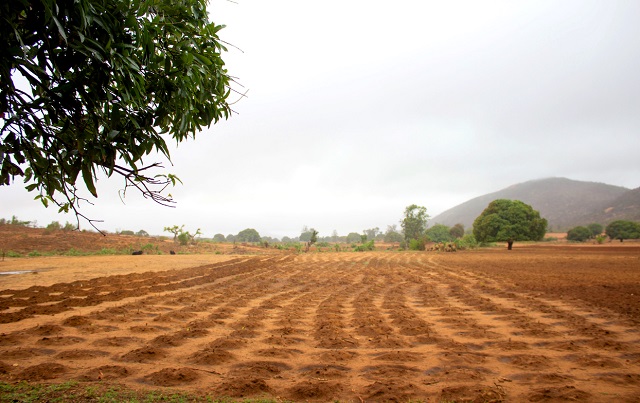Green energy transition for sustainable agriculture

Most of Botswana’s farmland and farms are situated in off-grid areas and extending grid to these remote areas is economically not viable. The use of renewable energy in these off-grid areas is limited as the upfront cost of the renewable energy equipment is high. Diesel genera-tors are most common for farming enterprises, but they have a negative impact on the cost of production as well as the environment and public health. Therefore, the National Development Bank (NDB) of Botswana initiates a funding program for farmers to mitigate GHG emissions and adapt to the consequences of climate change through renewable energy solutions and water efficient irrigation practices.
INITIAL SITUATION
Botswana’s climate is arid to semi-arid with highly erratic rainfall. The country has not been spared by climate change and continues to incur considerable environmental and economic costs in addressing challenges and negative climatic impacts. Since the early 1980s, extreme weather events such as drought, storms and floods have been more persistent. In 2015, Botswana’s emissions from the energy sector accounted for over 60 per cent and emissions from the agricultural sector for 11 per cent of total national GHG emissions. Botswana’s Agriculture and Horticulture sector provides an ideal opportunity to introduce methods that improve climate adaptation of the farms, mitigation of greenhouse gases and overall production and climate resilience of farm operations.
TARGET GROUPS
Applicants and beneficiaries of the funding program are small and medium-sized off-grid farm-ers and horticultural producers. The envisaged funding interventions promote women empow-erment as preference is given to women and youth led enterprises (target 25 per cent for youth and 25 per cent women).
PROJECT APPROACH
NDB initiates a funding scheme for small and medium-sized off-grid farmers and horticultural producers in Botswana. To enhance the country’s agricultural and horticultural production and avoid imports, cost- and emission-efficient farming methods need to be introduced. For this reason, the National Development Bank of Botswana is funding projects in the following priority areas:
- Replacement of diesel engines/generator on off-grid farms with solar energy
- Fitting of solar water pumps
- Solar heating, cooling, and lighting
- Energy saving solutions in cooling and lighting
- Water efficient irrigation (e.g. drip irrigation)
- Controlled farming environments to improve water and energy efficiency (e.g. shade netting, tunnels, hydroponics)
With this, NDB aims to reduce emissions of greenhouse gases through renewable energy solutions and energy-efficient technologies in Botswana’s agricultural sector. It further seeks to reduce negative environmental effects of diesel use in off-grid agricultural areas in Botswana and to ensure sustainable water use by adopting farming techniques that utilise less water and increase yields.
ABOUT THE ORGANISATION
The National Development Bank (NDB) was established under an act of parliament in 1963. The Bank is owned by the Government of Botswana and operates under the control of a Board of Directors appointed by the Minister of Finance and Development Planning. As a Development Financial Institution, NDB is viable and self-sustaining and continues to contribute immensely to the growth of the local economy. Its mission is to provide sustainable, innovative financial products and services for the development of the entire agricultural value chain through partnerships.
